When looking to create a website, it is almost impossible not to come across WordPress. And it is no wonder: according to statistics, it powers 39.6% of the Internet at the moment. Yet, the popularity of WordPress does not make it the perfect solution for all cases: the vulnerability of the platform and limited abilities of specific plugins give reason to search for alternatives. Even though WordPress remains one of the most user-friendly and efficient platforms, it is always good to be aware of the other options. In this article, we will focus on the platform limitations and discuss alternatives for various purposes to better understand what will work best for you.
Why Do People Look for WordPress Alternatives?
Website Vulnerability
The popularity of WordPress has a downside: an attractive opportunity for hackers to access the website and cause damage to it.
Free plugins and templates contain high-level security issues that may let hackers access posts and add malicious content. For instance, PageLayer plugins that can work with almost all themes on the market appeared to have vulnerabilities and failed to include permission checks. Over 200,000 sites were already using the plugins when the vulnerability was found.
The vulnerability of starter templates is crucial. According to the latest news, most plugins published by the Astra WordPress theme can lead to damage that may cause a site takeover by hackers, which is why utilizing ready-to-use solutions in WordPress may not always be a good idea.
All that publishers can do to decrease vulnerability is to update plugins to the latest versions. Still, WordPress makes it your responsibility to monitor updates and install them.
SEO Requires Plugins and Knowledge
While WordPress is one of the most SEO-friendly platforms and has numerous opportunities for creating all types of websites, it may not cover users’ needs in all cases. You can use plugins to improve your SEO in many ways, from changing page templates for meta tags generation to indexing management. Still, plugins cannot solve all of your problems, which is why you may need basic HTML/CSS knowledge or help from an additional service.
Let’s look at this example with a structured data markup. In general, structured data is a code that looks like this:
<script type="application/ld+json">
{
"@context": "http://schema.org",
"@type": "Product",
}
</script>If you add this script to your WordPress post, the search engine will understand what the page is about. In this example, we have added “product,” which tells search engines that the page is about the product and matches the content with search queries more accurately. The only issue is that you need to have basic HTML skills or invest your time to set a structured data markup.
Another point worth considering is a chance of vulnerability if the user wants to solve problems that require different plugins. Their weight can slow down the website’s speed or make it appear incorrectly on some devices. Lastly, the more plugins you install, the more vulnerable your website becomes.
Loading Speed of Themes and Plugins
If you try to run a WordPress site with a speed tester tool, the chances are likely that you will see “render blocking resources,” “unused CSS,” or “unused Javascript.” This is the reason the speed of the website may decrease as particular elements on the page cannot be rendered until the javascript or CSS are loaded. It happens most of the time due to the WordPress theme design that is quite difficult to correct by yourself. Additionally, plugins and the fact that WordPress is written with PHP may also affect the speed.
User Experience
From the UX perspective, the above-mentioned factors may affect the interaction of users with the website and their overall experience. The Core Web Vitals that Google uses to evaluate a website experience include three major components: first input delay (FID), cumulative layout (CLS), and largest contentful paint (LCP).
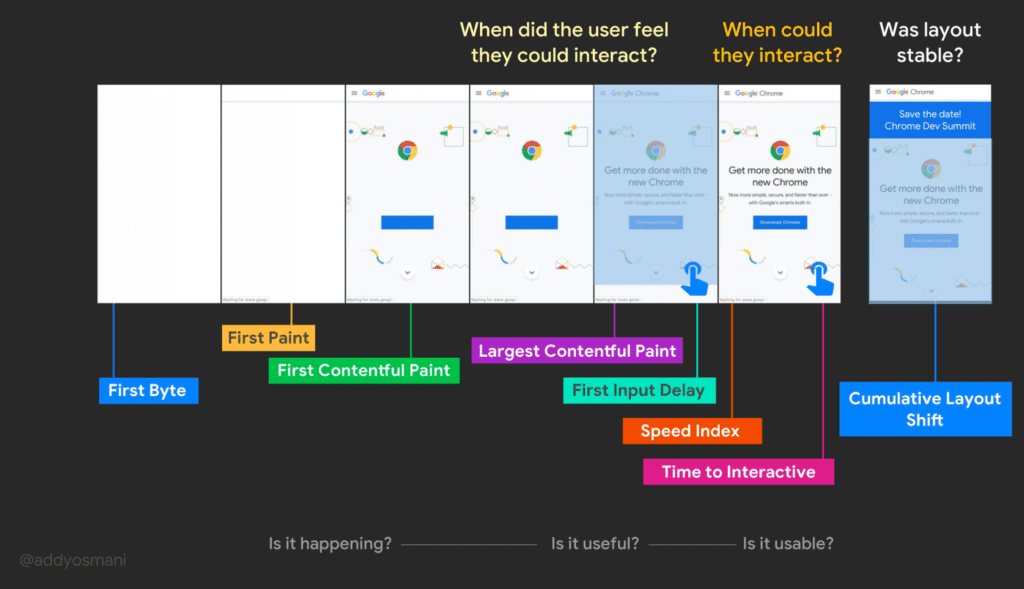
Most of these factors may be affected in some scenarios with WordPress. For instance, LCP defines how much time it will take for the user to see the page content. If themes or plugins are heavy, then the load time is more likely to increase.
CLS defines how stable the webpage is. Again, you need to pay attention and be careful with the themes and plugins you install to ensure that the content blocks are not moving around as you load the page.
Since Core Web Vitals recently became an important ranking factor, an additional SEO tool like SE Ranking will help define all your website’s technical problems.
Who Should Use WordPress?
WordPress is widely used for creating various types of websites with it. Most platforms are made to build a website or a blog, while WordPress can be used for a wide range of needs. Here is a list of website types you can create with WordPress (and it is not the full list):
- Blogs
- Business, Q&A, ECommerce, review websites
- Portfolios
- Forums
- eLearning modules
- Chatrooms
- Business directories
- Galleries
- Wikis and knowledge bases
WordPress is perfect for beginners, thanks to its user-friendly functionality and management. Any user can start with no prior experience with SEO, design, or development and get a working solution for business. You can enhance a website as you go, adding plugins and tweaking functionality, which is great in an ever-changing environment.

WordPress is an excellent solution for businesses that can compromise security and have enough resources to invest time and professional effort to set up a working site. If a company is short of finances, they can invest some time and figure out the matter by themselves — a large community and support enable them to do that. WordPress is free and easy to manage, which is why a business can take care of their website once everything is set up and extend their online presence further.
Who Will Not Benefit from WordPress?
When entrepreneurs create a website for business, most of them have one simple goal in mind: to create a site that converts into a purchase and attracts clients. As a UX designer, you know that all you need for such purposes is a reliable, UX-friendly website that will help you avoid issues rather than create new ones.
Even though WordPress can satisfy such needs in many cases, its functionality will not work for all types of websites.
WordPress is definitely not the best solution if the business is concerned with security. Even installing security plugins and paying close attention to updates does not guarantee that you will avoid a cyber attack. Furthermore, the platform does not offer hosting and tech support — it is worth considering if you or your clients plan to handle everything by yourself at first.
Here are some examples where it is better to avoid building websites with WordPress:
- Banking websites
- Investing and cryptocurrency websites
- Government websites
We suggest checking alternatives before settling with a CMS to make sure you understand the benefits and the flaws of every platform. Chances are, you will find a website builder that suits your needs better than WordPress.
6 Best WordPress Alternatives
1. MODX
Like WordPress, the platform combines CMS, development frameworks, and managed cloud hosting. It can serve as a great alternative if the business is looking for a secure solution. It has various features which can create all types of websites, blogs, catalogs, and other content types.
Benefits for UX Designers
- The platform has the flexibility to create both simple and complex sites.
- It pays special attention to security matters.
- Built-in features allow users to easily manage the website once it is built and solve any issues with professional support.
Price Range
$30-$275 per month
2. Joomla
From the SEO perspective, both Joomla and WordPress require the knowledge and help of plugins to improve SEO. However, Joomla is less exposed to vulnerabilities, which allows us to consider it as a WordPress alternative. It is great for developers who are ready to work with servers for the most part.
Benefits for UX Designers
- Joomla is highly customizable and flexible in terms of design.
- The platform has brand guidelines, from copy to colors, textures, images, CTAs, and more.
- It is easy to create a clear journey for your visitor and identify an audience persona.
Price Range
Free
3. Wix
Wix mainly focuses on creating appealing websites and plans to develop in this direction. The platform offers hosting and tech support, while WordPress does not specify such features. Wix can become your alternative if you are looking for an easy-to-use, creative website with professional support and enhanced security.
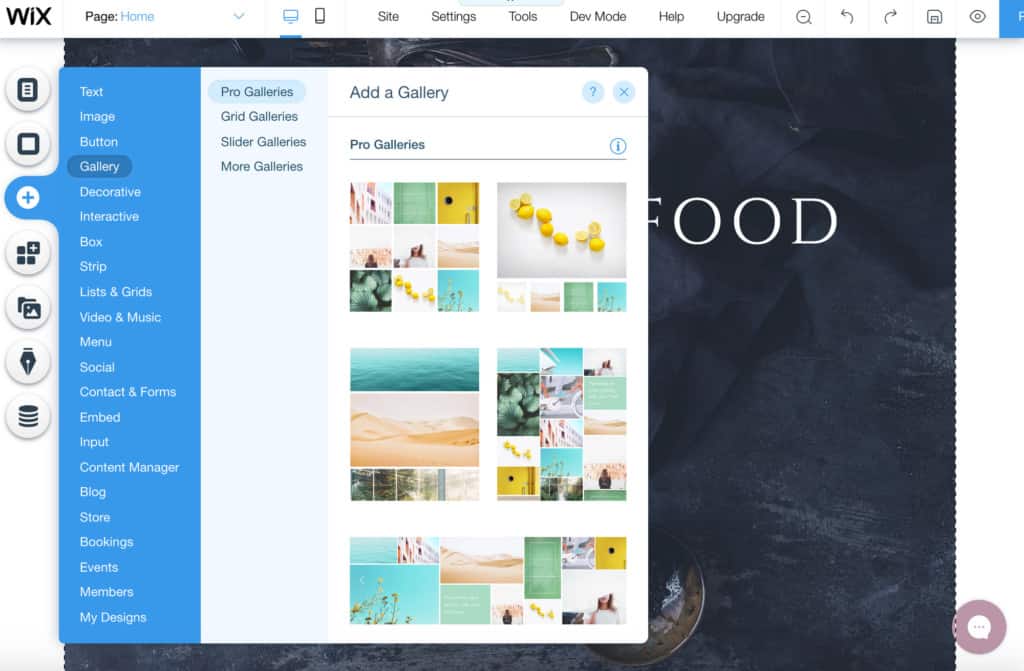
Benefits for UX Designers
- Flexible designs with numerous templates that allow you to build creative websites and adapt them for your needs.
- The platform offers CMS-like dynamic features, video backgrounds, scroll effects, and animations.
- Wix follows the latest trends and has a well-developed UI and UX.
Price Range
$4.50-24.50
4. Squarespace
Squarespace is a website design platform with “award-winning web designs.” The main benefit of Squarespace is the availability of built-in SEO and analytic tools that are hard to find on other platforms. Additionally, it offers blogging tools that let you categorize, share, and schedule posts. Similar to Wix, Squarespace also takes care of all technical aspects and support, which WordPress does not.
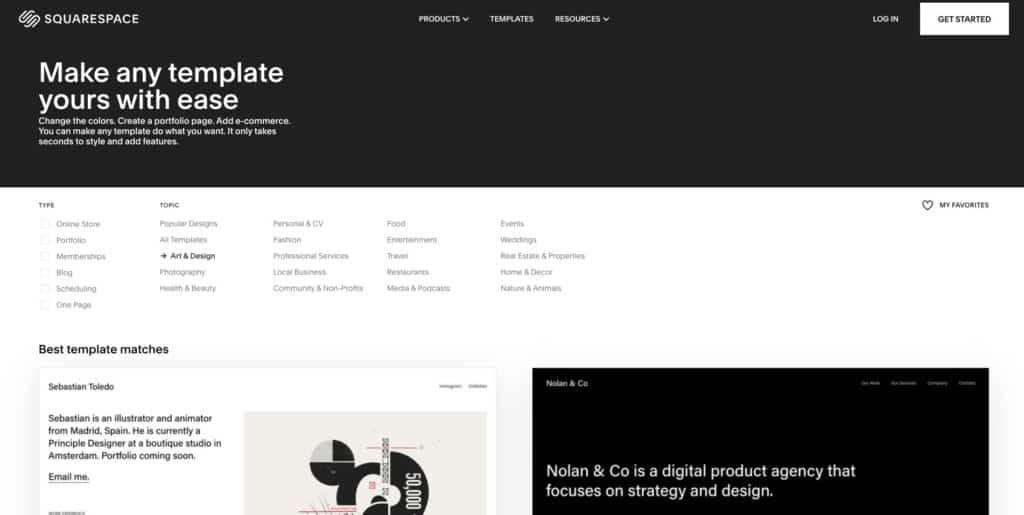
Benefits for UX Designers
- Get unlimited storage and bandwidth.
- Fully integrated eCommerce on most plans, which makes the platform a great fit for building online stores.
- UX designers will find built-in templates helpful when starting a new website. You automatically get built-in mobile version templates.
- You can use Squarespace’s custom CSS option to insert code on any website page.
Price Range
$12
5. OpenCart
While WordPress is a multi-tasker, OpenCart is designed for e-commerce stores. From the SEO perspective, OpenCart is not a piece of cake: you need to put some effort into figuring out how to use it effectively. Yet, it becomes easy to set up, manage, and analyze once you do.
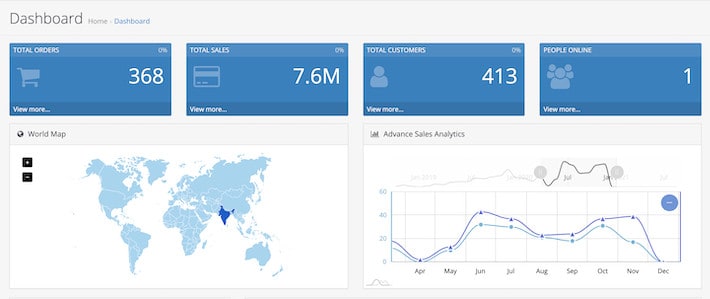
Benefits for UX Designers
- Availability of information lets users see an overview of total orders, sales, customers, sales analytics, and other widgets.
- The multi-store feature allows you to manage all stores in one place.
- Wide product variables let you adjust product size, color, length, and other variables.
Price Range
Free
6. Shopify
As Shopify is based on the SaaS model, it is built for users who do not have a technical or design background — pretty much anyone can sign up and create an appealing online shop. The main difference is that WordPress requires a more hands-on configuration, while Shopify is a tailored solution for an online shop.
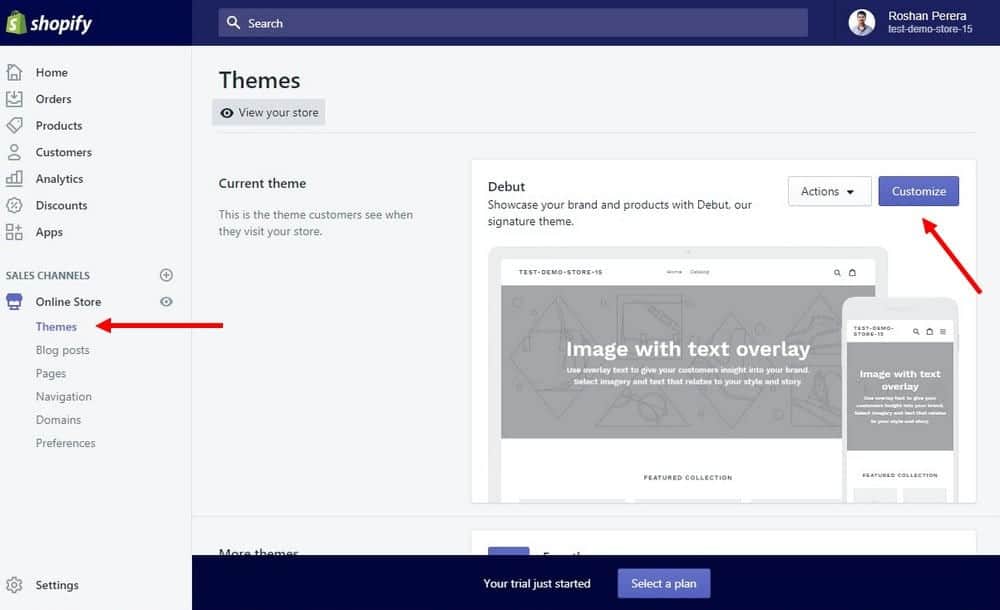
Benefits for UX Designers
- The platform has a range of customizable templates which help you meet business’ branding requirements.
- Shopify offers responsive and easy-to-edit templates with support.
Price Range
$9-2,000 per month
Let’s Draw to a Close
Is WordPress still bringing value? Definitely.
Can it be your all-in-one solution? This depends on your skills, expertise, and goals. WordPress can certainly become a solution for you or your client, considering it is one of the most beneficial platforms for beginners. It is completely free and has a large community, allowing individuals who have the time to invest in it to set up various website types.
Yet, WordPress has some flaws that can limit a website’s abilities if it requires a specific set of plugins or can only solve a problem with HTML/CSS knowledge.
Should you start looking at alternatives?
If you feel that security is one of your primary focuses and need a more tailored solution, you should consider alternatives. For instance, platforms such as Shopify or OpenCart are built for online shops, while Wix and Squarespace focus on websites for businesses.
When you choose the suitable CMS for your clients or yourself, the best you can do is define your goals, find bottlenecks, and go over the functionality of each platform — that way, you will get a clear understanding of whether WordPress is good for you.
Hero source image: Freepik






Your alternatives mix Apples and Oranges. Word Press is a blogging platform that people also extend as a CMS. It has plugins available to allow for shopping/eCommerce. The suggestions you make like OpneCart is an eCommerce platform with some basic CMS tools.
So the alternatives for Word Press are…
* One of the many blog/CMS cloud base tools, like WIX you mentioned.
* ExpressionEngine. A rock-solid and very secured PHP-based CMS. Very powerful and basic version is Open Source now.
* CraftCMS. Many folks moved from ExpressionEngine to this platform. Also very very powerful.
* Drupal. Everyone knows it.
* SilverStripe. A CMS/CMS framework from down under.
* ProcessWire. A powerful Open Source PHP CMS.
If you are avoiding Word Press for security reasons, Joomla would not be a recommended pick. It is powerful for a CMS, but also attracts bad plugin devs and hackers.
All the above CMSs have modules/plugins to do eCommerce as well.
Overall, if I was a designer looking for a CMS and I had some PHP skills, I would pick between ExpressionEngine and CraftCMS.
If I didn’t have much skills, I would either pick a cloud-based platform or a flat-file CMS (vs the database driven platforms above.) Flat-file CMSs are pretty easy to set up.
Hope this helps your readers.
Carlos Camacho